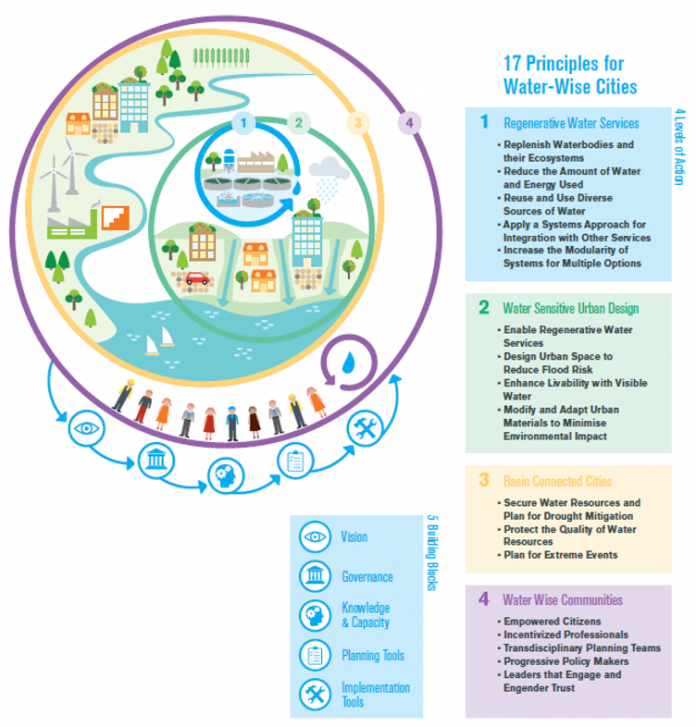
At the World Water Congress and Exhibition in Brisbane today, the International Water Association launched the Principles for Water Wise Cities, with a call for further cities to provide their endorsement.
The IWA developed the Principles for Water Wise Cities to inspire change amongst urban and local leaders and catalyse a shift in the current water management paradigm to make cities more resilient and liveable.
“This is everybody’s set of principles,” said Rob Skinner, Chair of the IWA Cities of the Future programme. “We’ve been working on this for four or five years, organising numerous workshops and seminars to engage a wide range of people, beginning in Montreal and then onto cities like Brisbane and Busan. Over 2,000 people have been seriously involved in forming these principles, not just water engineers, but physical town planners, social planners, economists and many more. So there has been a global input from a wide spectrum of disciplines.”
The Principles for Water Wise Cities outlines a framework to assist urban leaders and professionals to develop and implement their vision for sustainable urban water and resilient planning and design in their cities. Through the Principles, urban leaders, water managers, individuals and other stakeholders are inspired to collaboratively find solutions on urban water management challenges, and implement water wise management strategies through a shared vision that will enable the development of flexible and adaptable cities.
Following the World Water Congress & Exhibition, the Principles will be brought to the United Nations Habitat III Conference in Quito, Ecuador, where the Cities of the Future programme will push integrating water into city planning for sustainable development, resilience, and increased liveability in the New Urban Agenda. In Quito, individuals and organisations will sign a pledge to “Collaborate for Water Wise Cities” to cooperate across boundaries, scales and disciplines to implement sustainable urban water when implementing the New Urban Agenda.
“These principles go back to the challenges that were put forward to us four or five years ago due to the scattered approach from different elements of the water cycle in urban areas,” said Ger Bergkamp, IWA Executive Director. “Over the last couple of years discussions have really been focused on how do we bring this together with something that will provide a bit more coherence but also creates opportunities to interact beyond the water sectors, with other urban professionals. Water not only affects the water sector but can also be part of a much broader engagement and actually become a tool for engaging a wider set of actors. We hope those cities that have already endorsed will help by engaging partner cities, as we need exponential growth.”








